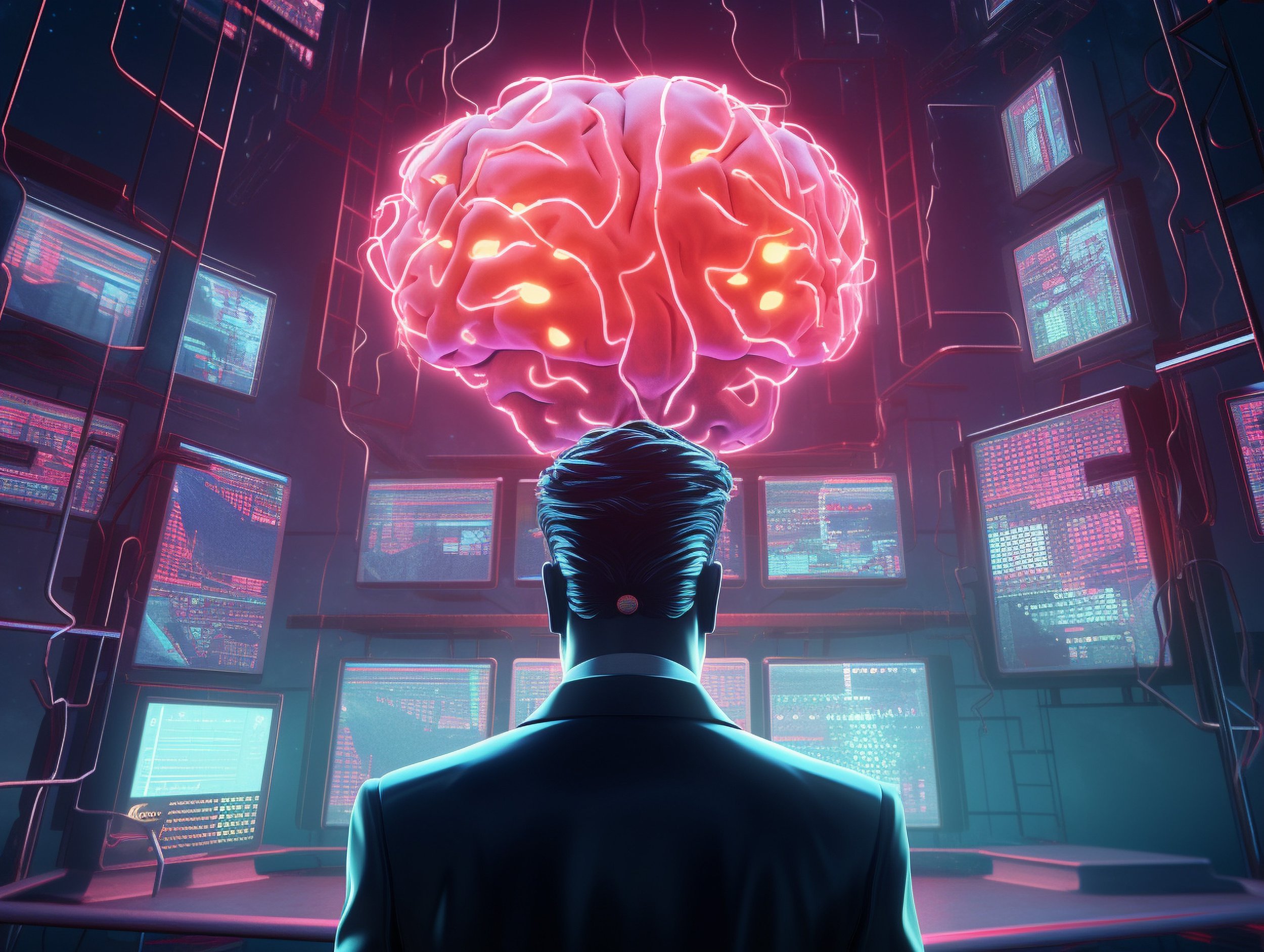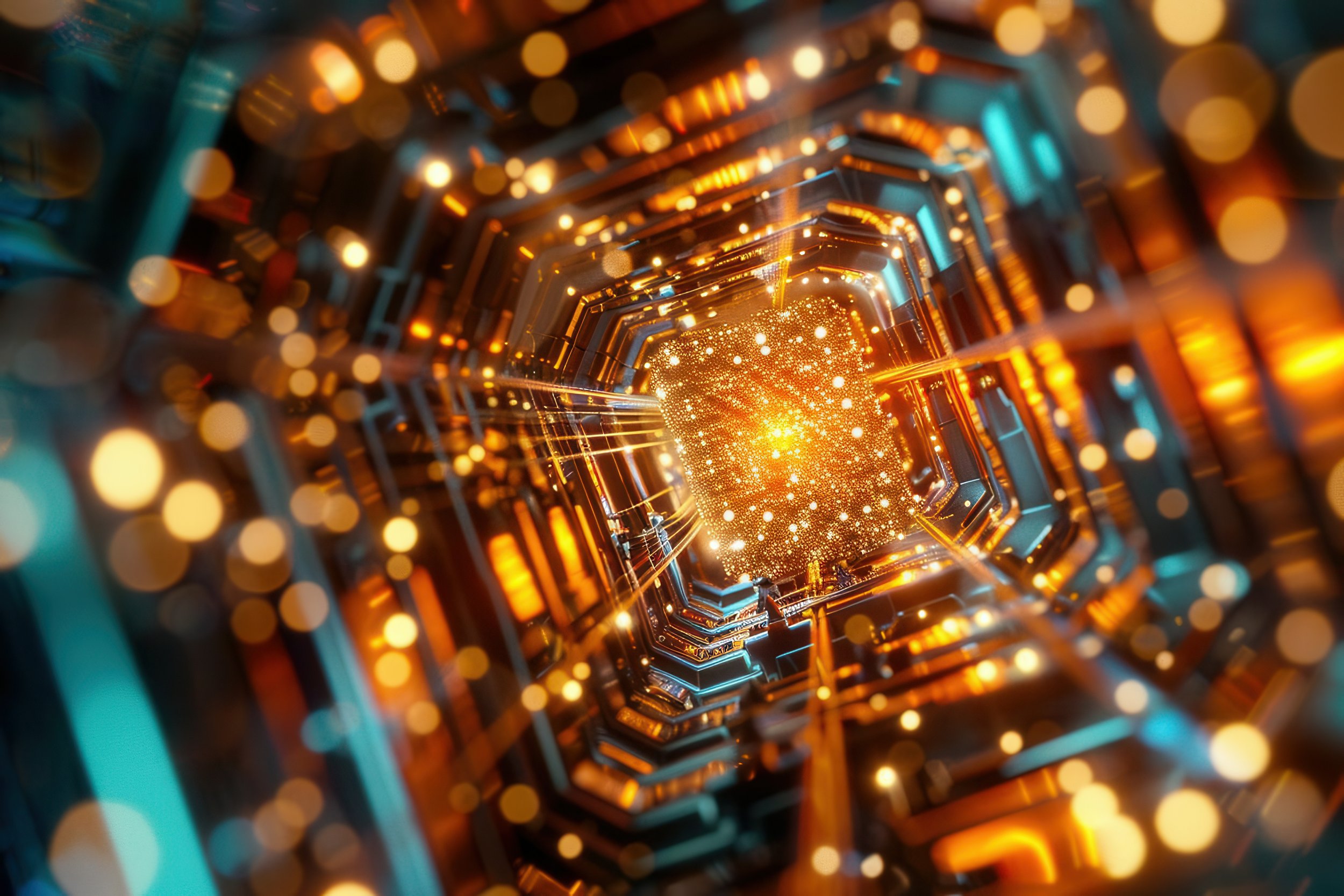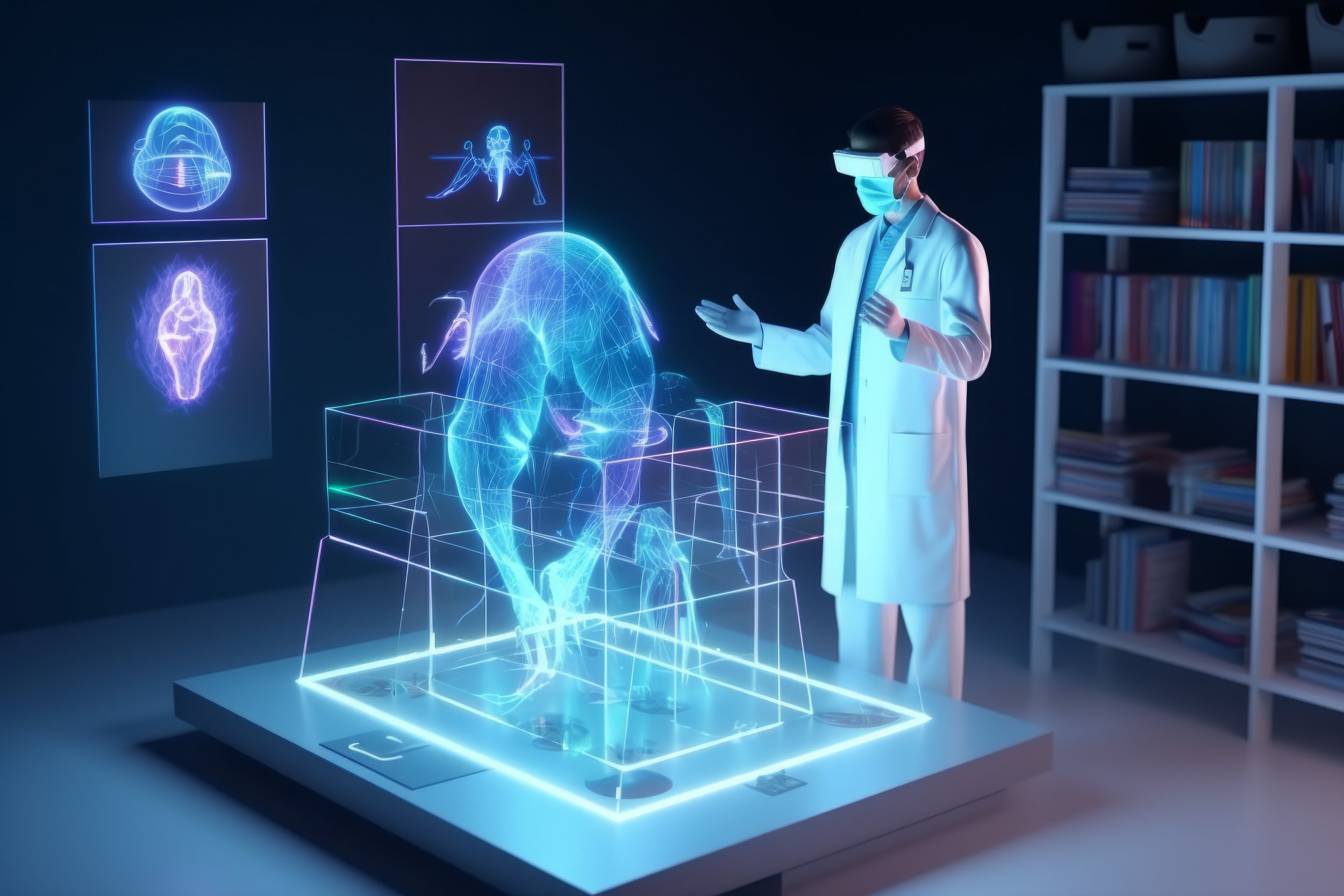
TechNews
Latest updates and insights on tech.
Edge IoT Security
The exponential growth of IoT devices exposes critical vulnerabilities in traditional cloud-dependent security models. Edge computing addresses these weaknesses by decentralizing data processing—reducing attack surfaces and minimizing latency in threat detection. Key implementations include localized encryption protocols and real-time anomaly detection at device clusters.
Health Monitoring Wearables
Advanced biosensors and AI algorithms are pushing wearables into clinical-grade diagnostics, enabling non-invasive monitoring of biomarkers and vital signs with unprecedented accuracy. These devices now integrate multiple data streams to provide comprehensive real-time health assessments. While challenges remain in sensor reliability and data privacy, these innovations point toward a future of truly preventive healthcare.
Generative Deep Learning
Generative models, such as GANs, learn data distributions to produce novel, realistic outputs across various media formats—from photorealistic images to synthetic voices. These architectures are transforming the creative industries and scientific research by enabling the generation of artificial content at unprecedented quality levels. As the technology matures, it raises important questions about authenticity and intellectual property in the digital age.
5G and Emerging Technologies
5G's ultra-low latency and high-bandwidth capabilities are unlocking new possibilities for immersive AR/VR experiences, responsive IoT networks, and reliable autonomous vehicle communications. By enabling real-time data processing at unprecedented speeds, this infrastructure simultaneously accelerates innovation across multiple tech sectors.
IoT Growth Challenges
The exponential growth of IoT devices exposes critical limitations in current networks' ability to manage security and data processing. Emerging solutions, such as edge computing architectures and advanced encryption protocols, aim to create resilient frameworks capable of supporting massive deployments. These innovations will be crucial for enabling real-time analytics and maintaining system reliability across expanding IoT ecosystems.
Autonomous Vehicles: Future
AV technology combines cutting-edge sensors and AI to redefine transportation through enhanced safety and efficiency. Yet its adoption presents complex ethical questions about algorithmic decision-making in critical scenarios, alongside evolving regulatory frameworks. Addressing these challenges through cross-sector collaboration will determine how successfully this innovation transforms our roads.
Biometric Authentication
Cutting-edge biometric technologies, such as vein patterns, voice signatures, and gait analysis, are expanding authentication possibilities beyond conventional methods. While offering superior security and user convenience, these emerging solutions must overcome hurdles, including spoofing vulnerabilities and compliance with privacy regulations.
Next-Gen Solar Cells
Emerging PV technologies, such as perovskite solar cells and organic-inorganic hybrids, are pushing efficiency boundaries while reducing production costs. Tandem cell architectures and luminescent concentrators demonstrate particular promise for commercial viability. These innovations address critical limitations of conventional solar cells, potentially accelerating the transition to renewable energy dominance.
IoT for Smarter Cities
IoT networks revolutionize urban management through real-time monitoring of traffic, energy use, and waste systems. Sensor-generated data enables cities to optimize resource allocation and enhance public services, while also addressing challenges in data security and infrastructure costs. The technology's predictive capabilities allow for proactive maintenance and more efficient urban planning.
Blockchain in Supply Chains
Blockchain technology transforms supply chain management by creating immutable, decentralized records that enhance traceability from origin to consumer. This innovation enables the real-time tracking of goods while verifying ethical sourcing and production standards, empowering both businesses and customers with unprecedented visibility.
AR in Experiential Learning
Augmented Reality bridges the gap between theory and practice by creating immersive, interactive learning environments that enhance skill development and learning. Through location-based experiences and collaborative problem-solving scenarios, AR enhances engagement, fosters critical thinking, and improves knowledge retention. This technology enables educators to equip students with essential 21st-century competencies through hands-on digital experiences.
Quantum Cryptography
Quantum cryptography leverages quantum mechanics to establish theoretically unhackable communication via Quantum Key Distribution (QKD). Unlike traditional encryption, QKD offers unconditional security by detecting any eavesdropping attempts. As research advances, this technology has the potential to redefine global data security standards in our increasingly vulnerable digital world.
AI in Predictive Healthcare
AI transforms patient care through predictive analytics, enabling the early detection of diseases and the delivery of personalized treatments. These technologies analyze vast datasets to uncover critical health patterns that humans might miss. While promising improved outcomes, challenges like data privacy and algorithmic bias require careful navigation as this technology reshapes modern medicine.
Tech in Urban Foodscapes
Modern urban farming integrates cutting-edge technology to transform rooftops, vertical spaces, and unused urban areas into productive agricultural hubs. These innovative solutions address food security challenges while reducing environmental impact through localized production and resource-efficient growing systems.
Quantum Computing's Impact
Quantum computing is poised to redefine the boundaries of computation across multiple sectors. Its extraordinary processing power offers groundbreaking potential—from accelerating drug discovery to optimizing financial models and strengthening encryption. The technology heralds a new era of innovation in logistics, cybersecurity, and beyond.
Smart Infrastructure in Transportation
Modern transportation systems are undergoing a radical transformation through smart infrastructure, leveraging IoT, AI, and big data to optimize urban mobility. These innovations address critical challenges—from reducing traffic congestion to improving road safety—through real-time monitoring and predictive analytics. The integration of autonomous vehicles and adaptive traffic management further enhances efficiency, laying the foundation for sustainable, connected cities.
AI in Retail Analytics
Artificial Intelligence is redefining retail through advanced analytics, enabling smarter decision-making and enhanced customer engagement. By analyzing consumer behavior, predicting demand, and optimizing inventory, AI empowers retailers to deliver personalized experiences while boosting operational efficiency. These innovations not only strengthen customer relationships but also drive sustainable business growth in an increasingly competitive market.
Biometrics: Security and Privacy
Biometric security systems offer a transformative approach to authentication, striking a balance between advanced protection and critical privacy considerations. Technologies such as fingerprint scanning and facial recognition enhance security but also raise complex ethical and regulatory questions. The discussion examines emerging biometric modalities, evolving compliance frameworks, and the broader societal impact of these systems in an increasingly digital world.
AI in Talent Management
The evolving landscape of talent acquisition is shaped by the powerful synergy between human expertise and AI-driven technologies. By enhancing recruiting, hiring processes, and talent management, AI optimizes workflows, strengthens decision-making, and supports more inclusive talent strategies. Key insights highlight the role of AI in personalized candidate engagement, data-driven recruitment, and advancing diversity and inclusion initiatives.
Tech in Chronic Health
Technology is playing a vital role in transforming the management of chronic diseases, offering tools that support daily care and long-term health. This study examines innovations in remote monitoring, medication management, lifestyle tracking, and patient education, highlighting how these solutions empower individuals with conditions like diabetes and heart disease. By promoting autonomy and enabling proactive care, technology is driving better outcomes and enhancing the quality of life for individuals living with chronic illnesses.




















